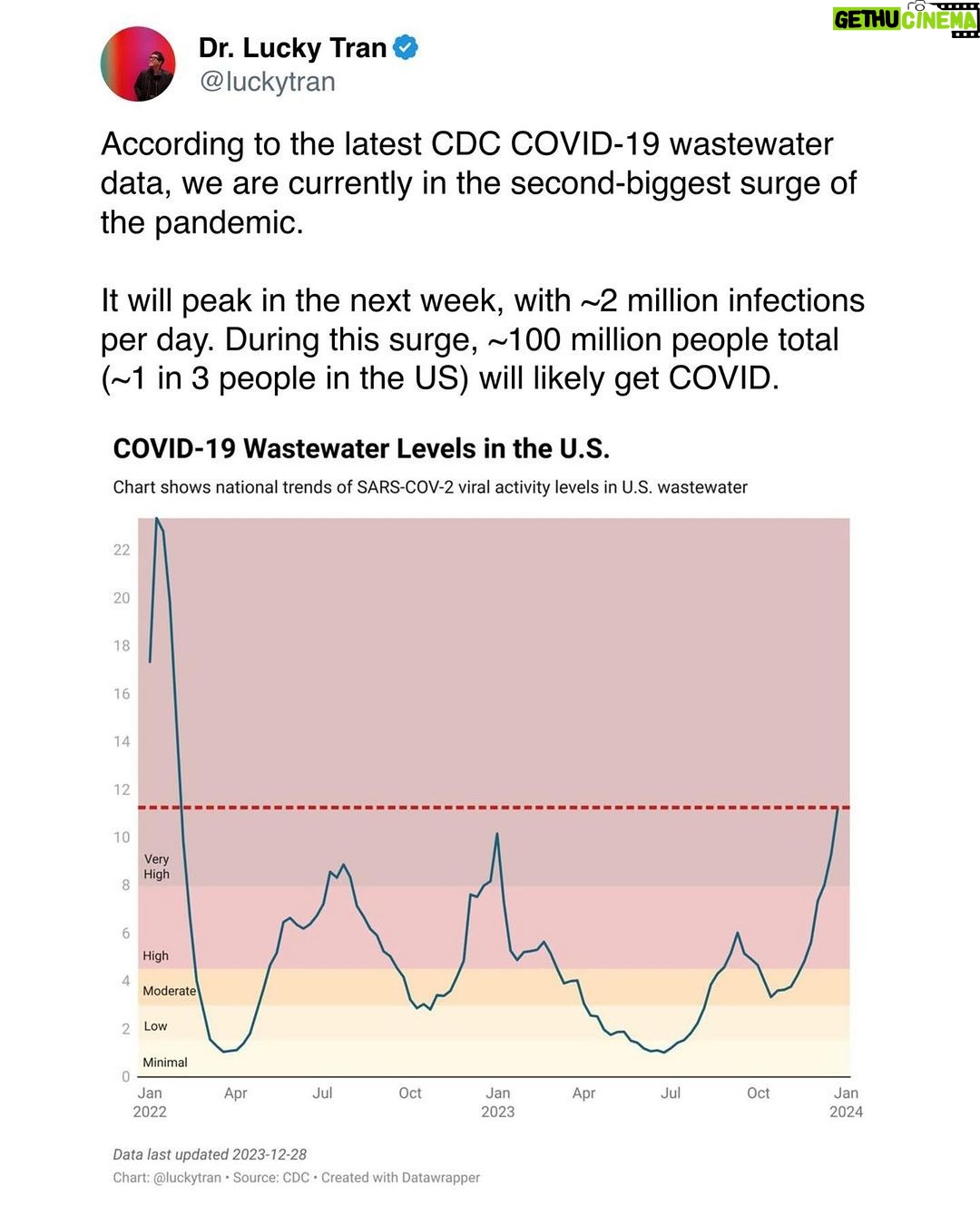Matt McGorry Instagram – Repost from @muddy.gordon
“Is It Dangerous to Keep Getting COVID-19?” by Alice Park (in Time magazine- google it)
—-
“There is some early evidence starting to show that if you had COVID-19, there can be all sorts of problems after getting infected” and reinfected, says Dr. Robert Murphy, professor of medicine and executive director of the Havey Institute for Global Health at Northwestern’s Feinberg School of Medicine. “We are just at the beginning of learning about them.”
—-
“At this point, many people view COVID-19 as relatively benign. But even if you’ve already recovered from a mild case, there’s no guarantee that next time will go as smoothly. “Just because you did okay with it last year doesn’t mean you’ll do okay with it this year,” Smith says.
“There is a mischaracterization in the public understanding that you can get an acute infection with fever, cough, malaise, and fatigue, get over it after a few days or a week or so, then bounce back, and it’s gone,” says Al-Aly. “The data are showing that [some] people still display increased risk of problems even two years after an infection.”
That’s what he found in his study. People who had multiple infections were three times more likely to be hospitalized for their infection up to six months later than those who only got COVID-19 once, and were also more likely to have problems with clotting, gastrointestinal disorders, kidney, and mental-health symptoms. The risks appeared to increase the more infections people experienced.”
——
“Each time you get hit, it does impact your body, so let’s try not to get it too many times,” says Smith. That’s easier said than done, since after three years, people are tired of taking precautions such as wearing masks and avoiding crowded public spaces. “We’ve lost the public-health battle; there is no appetite for public masking or stringent public health measures,” says Al-Aly.” | Posted on 13/Jan/2024 01:45:03

![Matt McGorry Instagram - Repost from @muddy.gordon “Is It Dangerous to Keep Getting COVID-19?” by Alice Park (in Time magazine- google it) —- “There is some early evidence starting to show that if you had COVID-19, there can be all sorts of problems after getting infected” and reinfected, says Dr. Robert Murphy, professor of medicine and executive director of the Havey Institute for Global Health at Northwestern’s Feinberg School of Medicine. “We are just at the beginning of learning about them.” —- “At this point, many people view COVID-19 as relatively benign. But even if you’ve already recovered from a mild case, there’s no guarantee that next time will go as smoothly. “Just because you did okay with it last year doesn’t mean you’ll do okay with it this year,” Smith says. “There is a mischaracterization in the public understanding that you can get an acute infection with fever, cough, malaise, and fatigue, get over it after a few days or a week or so, then bounce back, and it’s gone,” says Al-Aly. “The data are showing that [some] people still display increased risk of problems even two years after an infection.” That’s what he found in his study. People who had multiple infections were three times more likely to be hospitalized for their infection up to six months later than those who only got COVID-19 once, and were also more likely to have problems with clotting, gastrointestinal disorders, kidney, and mental-health symptoms. The risks appeared to increase the more infections people experienced.” —— “Each time you get hit, it does impact your body, so let’s try not to get it too many times,” says Smith. That’s easier said than done, since after three years, people are tired of taking precautions such as wearing masks and avoiding crowded public spaces. “We’ve lost the public-health battle; there is no appetite for public masking or stringent public health measures,” says Al-Aly.”](https://www.gethucinema.com/wp-content/uploads/2024/03/MattMcGorry-12.jpg)





